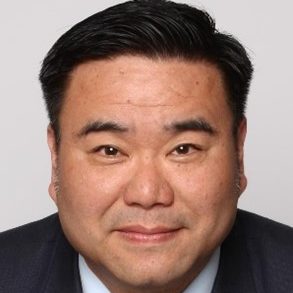La version française suit la version anglaise.
Dear York community,
On Oct. 21, the Government of Canada lifted its advisory for fully vaccinated Canadians to avoid all non-essential international travel. At this time, all unvaccinated travellers are still advised to continue avoiding non-essential travel to all destinations. All members of the York community, including faculty, staff and students, should follow this advisory to support the health and safety of our community.
Please be advised that COVID-19 related restrictions continue to impact international travel and operations for our partner institutes. Everyone must consult the Government of Canada’s travel advisory based on their intended destination and follow health and security recommendations in addition to prevention measures, such as mask wearing, hand washing and practising physical distancing.
As of Oct. 30, all travellers who are departing from Canadian airports or travelling on VIA Rail are required to be fully vaccinated. Further guidance on international travel can be found in the International Travel FAQs on the Better Together website.
International programs
Given the recent lifting of the Government of Canada’s global COVID-19 travel advisory, York is pleased to resume University-sponsored or sanctioned international programs for students in safe travel corridor destinations.
The criteria for safe travel corridors include:
- ability to travel to a host country without border restrictions;
- confirmation of a partner institution’s readiness to receive students for in-person courses or research;
- confirmation of comprehensive health insurance, including COVID-19 coverage;
- participation in pre-departure training, in co-ordination with York International;
- proof of vaccination;
- support from home Faculty/research unit;
- review of vaccination and quarantine requirements in a destination country; and
- review of public health measures in a host country (e.g. level of restriction).
Students who were scheduled to participate in an international program for the Winter 2022 term and respective international program co-ordinators situated in Faculties will be notified of this change.
Graduate student travel
This will be resumed for safe travel corridor countries and other destination countries that are not on the list and will continue to be considered on a case-by-case basis. For travel to non-safe corridor countries, graduate students can work with their supervisor, the Faculty of Graduate Studies, York International, the Office of the Vice-President Research and Innovation (VPRI), and Risk Management to develop a health and safety plan. The current assessment takes into consideration Global Affairs Canada travel advisories to the region, local advisories, availability of insurance that includes COVID-19 testing and treatment, familiarity with the region and added consideration for the essential nature of the research. This can be determined by the supervisor, dean’s office and VPRI prior to the assessment.
International travel for faculty, researchers, instructors
Everyone is encouraged to visit the Government of Canada’s travel advice and advisories for your destination(s) before making international travel arrangements. The site will help you to verify health recommendations and safety and security information, while keeping you apprised of the COVID-19 situation and required public health measures for your destination.
University-funded business travel
This is now permitted and should be approved by the respective decanal office or unit/division head or their delegates. A health, safety and risk assessment must be completed prior to travel and must adhere to the host country or institution’s health and safety requirements. It will also be necessary to have a health and safety plan in place. Questions related to safety abroad can be submitted to safetyabroad@yorku.ca.
Travelling to York from outside of Canada
Everyone coming to York from outside of Canada must complete all of the mandatory quarantine and testing requirements. As of Sept. 7, all travellers arriving in Canada who are fully vaccinated with a Health Canada-approved vaccine may be exempt from quarantine requirements. Regardless of vaccination status, upon arrival each traveler must show a viable quarantine plan to a border services officer.
York University runs an off-campus quarantine program for all international arrivals destined for York. For more information on this, please visit York International’s Quarantine Information page. Further guidance on inbound travel can be found in the International Travel FAQs.
We will continue to monitor the situation regularly and provide updates should circumstances change. York International will also be available to provide support to assess and develop risk mitigation plans for international travel, where and when required. For more information, please contact York International at goglobal@yorku.ca or safetyabroad@yorku.ca and please continue visiting the Better Together website for regular updates.
Sincerely,
Lisa Philipps
Provost & Vice-President Academic
Amir Asif
Vice-President, Research & Innovation
Conseils pour les voyages internationaux
Chers membres de la communauté de York,
Le 21 octobre 2021, le gouvernement du Canada a levé son avertissement d’éviter tout voyage international non essentiel pour les Canadiens et Canadiennes entièrement vaccinés. Il est toujours conseillé aux voyageurs non vaccinés d’éviter les voyages non essentiels vers toutes les destinations. Tous les membres de la communauté de York, y compris le corps enseignant, le personnel et la communauté étudiante, doivent suivre cet avertissement pour assurer la santé et la sécurité de notre communauté.
Veuillez noter que les restrictions liées à la COVID-19 continuent d’avoir un impact sur les voyages internationaux et sur les opérations des établissements partenaires. Toute le monde doit consulter les avertissements aux voyageurs du gouvernement du Canada en fonction de la destination prévue et suivre les recommandations en matière de santé et de sécurité en plus des mesures de prévention, comme le port d’un masque, le lavage des mains et la pratique de la distanciation physique.
Depuis le 30 octobre 2021, tous les voyageurs en partance d’un aéroport canadien et les voyageurs de VIA Rail doivent être entièrement vaccinés. Vous trouverez des conseils supplémentaires pour les voyages internationaux dans la FAQ sur les voyages internationaux sur le site Web Better Together.
Programmes internationaux pour la communauté étudiante
Étant donné la levée récente de l’avertissement aux voyageurs du gouvernement du Canada en matière de COVID-19, l’Université York est heureuse de reprendre les programmes internationaux parrainés ou sanctionnés par l’Université dans les pays faisant partie des zones de voyage libre sécuritaires.
Les critères pour des zones de voyage libre sécuritaires comprennent ce qui suit :
- Capacité de se rendre dans un pays d’accueil sans restrictions frontalières;
- Confirmation que l’établissement partenaire est prêt à accueillir des étudiants pour des cours ou des recherches en personne;
- Confirmation d’une assurance maladie exhaustive, y compris une couverture contre la COVID-19;
- Participation à une formation avant le départ, en coordination avec York International;
- Preuve de vaccination;
- Soutien de la faculté/l’unité de recherche d’attache;
- Examen des exigences en matière de vaccination et de quarantaine dans un pays de destination; et
- Examen des mesures de santé publique dans un pays hôte (par exemple, le niveau de restriction).
Les étudiants et étudiantes qui devaient participer à un programme international pour le trimestre d’hiver 2022 et les coordonnateurs des programmes internationaux respectifs des facultés seront informés de ce changement.
Voyage des diplômés
Les voyages des diplômés dans les pays des zones de voyage libre reprendront; les autres destinations qui ne figurent pas sur la liste continueront d’être examinées au cas par cas. Pour les voyages dans des zones de voyage considérées comme étant non sécuritaires, les diplômés peuvent travailler avec leur superviseur, la Faculté des études supérieures (FGS), York International, le bureau du VPRI et le Service de gestion des risques pour élaborer un plan de santé et de sécurité. L’évaluation actuelle prend en considération les avertissements aux voyageurs d’Affaires mondiales Canada à la région, les avertissements locaux, la disponibilité d’une assurance comprenant des tests et un traitement contre la COVID-19, la bonne connaissance de la région ainsi que la nature essentielle de la recherche. Tout cela peut être déterminé par le superviseur, le bureau du doyen et celui du VPRI avant l’évaluation.
Voyages internationaux pour les professeurs, chercheurs, instructeurs
Nous encourageons tout le monde à consulter les conseils et les avertissements aux voyageurs du gouvernement du Canada pour votre ou vos destinations avant de prendre des dispositions pour voyager à l’étranger. Sur le site, vous pourrez vérifier les recommandations sanitaires et les informations relatives à la sécurité, tout en vous tenant au courant de la situation de la COVID-19 et des mesures de santé publique requises pour votre destination.
Voyages d’affaires financés par l’Université
Ils sont maintenant autorisés, mais ils doivent être approuvés par le Bureau décanal respectif ou le chef d’unité/de division ou leurs délégués. Une évaluation de la santé, de la sécurité et des risques doit être effectuée avant le départ et les exigences du pays ou de l’institution d’accueil en matière de santé et de sécurité doivent être respectées. Il sera également nécessaire de mettre en place un plan de santé et de sécurité. Les questions concernant la sécurité à l’étranger peuvent être soumises à safetyabroad@yorku.ca.
Voyages à York en provenance d’un pays étranger
Toute personne se rendant à York en provenance d’un pays étranger doit respecter toutes les exigences obligatoires en matière de quarantaine et de tests de dépistage. Depuis le 7 septembre 2021, tous les voyageurs arrivant au Canada qui sont entièrement vaccinés avec un vaccin approuvé par Santé Canada peuvent être exemptés des exigences de quarantaine. Peu importe leur statut vaccinal, à leur arrivée, tous les voyageurs doivent présenter un plan de quarantaine viable à un agent des services frontaliers.
L’Université York a un programme de quarantaine hors campus pour les voyageurs à York en provenance de l’étranger. Pour plus d’information, visitez la page York Quarantine Information. Vous trouverez des conseils supplémentaires sur les voyages internationaux dans la FAQ sur les voyages internationaux.
Nous continuerons de surveiller la situation et nous vous fournirons de nouvelles informations si les circonstances changent. York International offrira également un soutien pour évaluer et élaborer des plans d’atténuation des risques pour les voyages internationaux, en cas de besoin. Pour plus d’informations, veuillez contacter York International à l’adresse suivante : goglobal@yorku.ca ou safetyabroad@yorku.ca. Veuillez continuer à consulter le site Web Better Together pour des mises à jour régulières.
Veuillez agréer mes sincères salutations,
Lisa Philipps
Rectrice et vice-présidente aux affaires académiques
Amir Asif
Vice-président de la recherche et de l’innovation



















